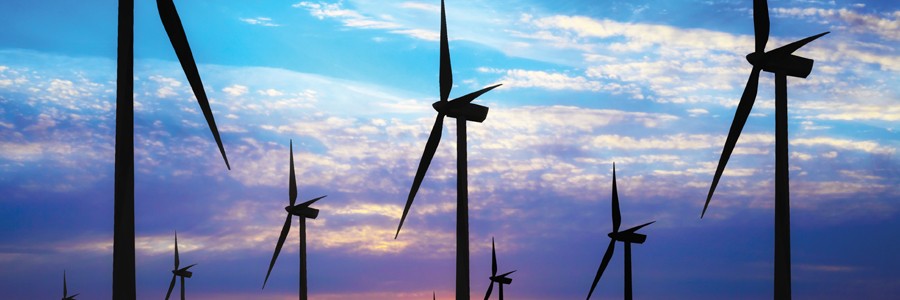PDA Renewable Energy Systems Modules
A typical PDA in Renewable Energy Systems program by Open / Distance learning – Course Contents
PDA – Renewable Energy Systems – G85G 15
Mandatory Units (6 credits required ):
Renewable Energy Systems: Overview of Energy Use
(Unit Code F1YL 34 – 2 Credits)
This Unit has been designed to provide candidates with knowledge and understanding of current issues and trends in the production and use of energy. The Unit will also allow candidates to gain an understanding of the need for sustainability and the adoption of renewable energy sources in order to limit global environmental damage. In all cases, arguments are primarily developed on the basis of quantitative data, though qualitative social factors are also considered. The Unit is largely theoretical in nature and does not consider the technology of renewable energy systems, and as such, the Unit may be considered applicable to disciplines out with Engineering.
On completion of the Unit the candidate should be able to:
- Describe global energy uses and trends
- Explain environmental effects associated with energy production and use
- Analyse the costs of different sources of energy
- Compare the advantages and disadvantages of alternative energy sources
- Explain the concepts of efficiency and energy saving in buildings, transportation and power generation.
Renewable Energy Systems: Technology
(Unit Code F1YN 34 – 2 credits)
This Unit has been designed to provide candidates with a knowledge and understanding of natural systems and processes that can be exploited as sources of renewable energy. Candidates will gain familiarity with the physics and engineering of the equipment used for extracting the available energy, and understand how energy transfer processes impact on efficiency and cost. A wide range of renewable energy sources are considered either individually or by reference to common or shared properties, and candidates will emerge with a level of technical knowledge that will permit them to undertake accurate quantitative comparisons between technologies, and the ability to calculate the potential or effectiveness of a particular system or solution. The way energy is used, particularly in buildings, is also considered and technological solutions that reduce energy waste are examined. The focus in the Unit is strongly on general principles and the candidate is not expected to design or construct complete systems, or assess in detail the operation of any specialist system. Specialist Renewable Energy Systems Units have been developed to allow candidates to study individual renewable energy technologies in greater depth than are possible in this Unit.
On completion of the Unit the candidate will be able to:
- Explain the operation and characteristics of electrical generator systems
- Explain the characteristics and optimal design of prime movers used in renewable energy applications
- Analyse the effectiveness of wind, wave, tidal and hydroelectric systems
- Evaluate energy transportation issues including hydrogen-based solutions
- Investigate the characteristics of photovoltaic (PV) system
- Analyse the heating requirements of buildings to reduce energy end-use.
Renewable Energy Systems: Microgeneration Systems
(Unit Code F1YK 34 – 1 credit)
This Unit has been designed to develop candidates’ knowledge and understanding of small power renewable energy generation systems suitable for domestic or small community development The Unit deals with all aspects of generating energy for the home or small business from planning, installation and running such systems. Candidates will have opportunities to develop a report on the energy conservation issues associated with using microgeneration on small scale ventures which can be their own home, business or community. Various technologies that can be used for this type of energy generation will be investigated mainly through using existing products available on the market but self designed systems can also be used. The financial and environmental impact of using microgeneration systems against using energy from the national grid will also be investigated.
On completion of the Unit the candidate should be able to:
- Analyse the results from an energy audit
- Select a microgeneration system for a particular project
- Evaluate the effects and benefits of microgeneration from a financial and environmental point of view.
Renewable Energy Systems: Wind Power
(Unit Code F1YR 35 – 1 credit)
Video on Wind Turbines Worth Watching !!!
This Unit has been designed to provide candidates with a good technical knowledge and understanding of the principles of operation of wind turbines. The Unit also highlights the importance of environmental and economic factors when planning the installation of a turbine or turbine group. The candidate will be encouraged to develop an objective approach to the planning of a wind power system by quantifying such factors as mean power output and variability using meteorological information appropriate to the site. The candidate will be expected to make scientifically competent recommendations based on this data. Installation effort, reliability and maintenance issues are also to be considered.
The content of the Unit is largely theoretical, but basic engineering principles will be reinforced through a practical investigation of operational turbines and/or the behaviour of models in the laboratory. The focus of the Unit is solely on large wind turbines.
On completion of the Unit the candidate will be able to:
- Analyse the response of different turbine and rotor designs to a variety of wind conditions
- Evaluate the economic performance and environmental impact of a turbine in a variety of locations
- Apply an operational understanding of wind turbines to a theoretical or practical problem context














